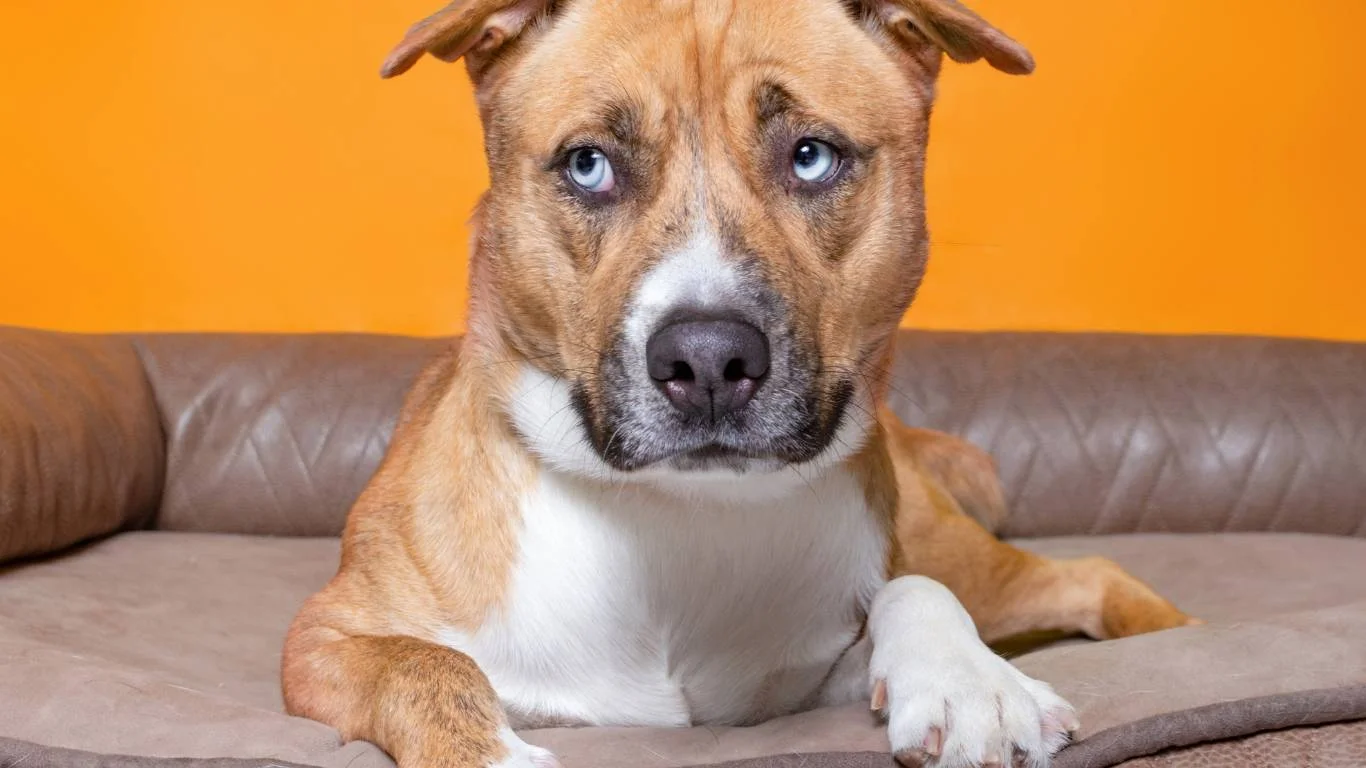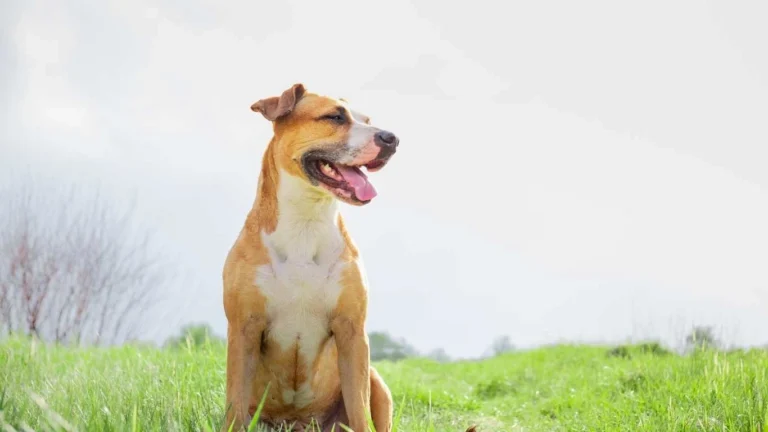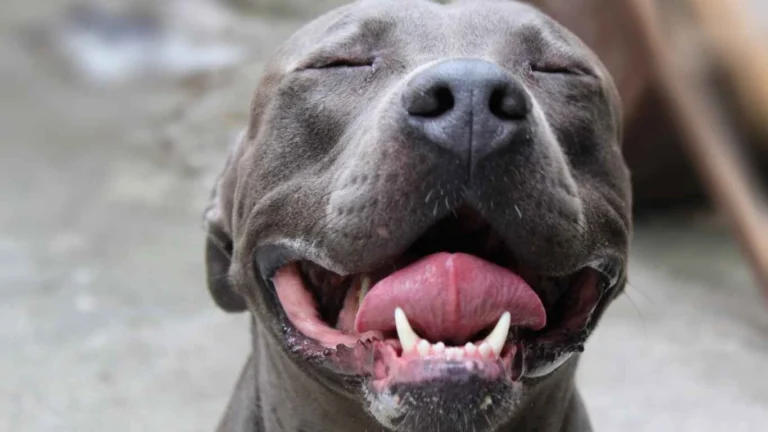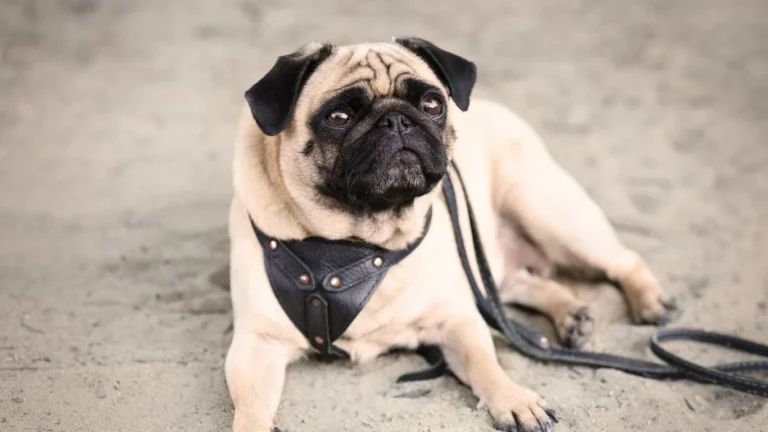Discover What Causes Excessive Gas in Dogs and How to Stop It
If you’re a dog owner, you may have experienced the occasional mystery of your dog letting out some unexpected gas. While it can be funny, excessive gas in dogs is more than just an annoying odor. If you’re wondering, “What causes excessive gas in dogs?” you’re not alone! It’s a question that comes up frequently in my experience as a Veterinary Assistant with a nutrition focus. As someone who’s worked closely with dogs, I’ve seen firsthand how frustrating this issue can be for both the dog and their owner. In this blog post, we’ll break down the reasons behind your dog’s gassy moments and what you can do about it.
Understanding Excessive Gas in Dogs: The Basics
Gas in dogs is a natural occurrence, just like in humans. But when it becomes excessive, it can be a sign of something more serious than just a quirky behavior. Some level of flatulence is normal, but it’s important to monitor your dog’s digestion and overall health to determine if there’s an underlying issue. The first step is understanding the basics of digestion and how it can go awry in our furry companions.
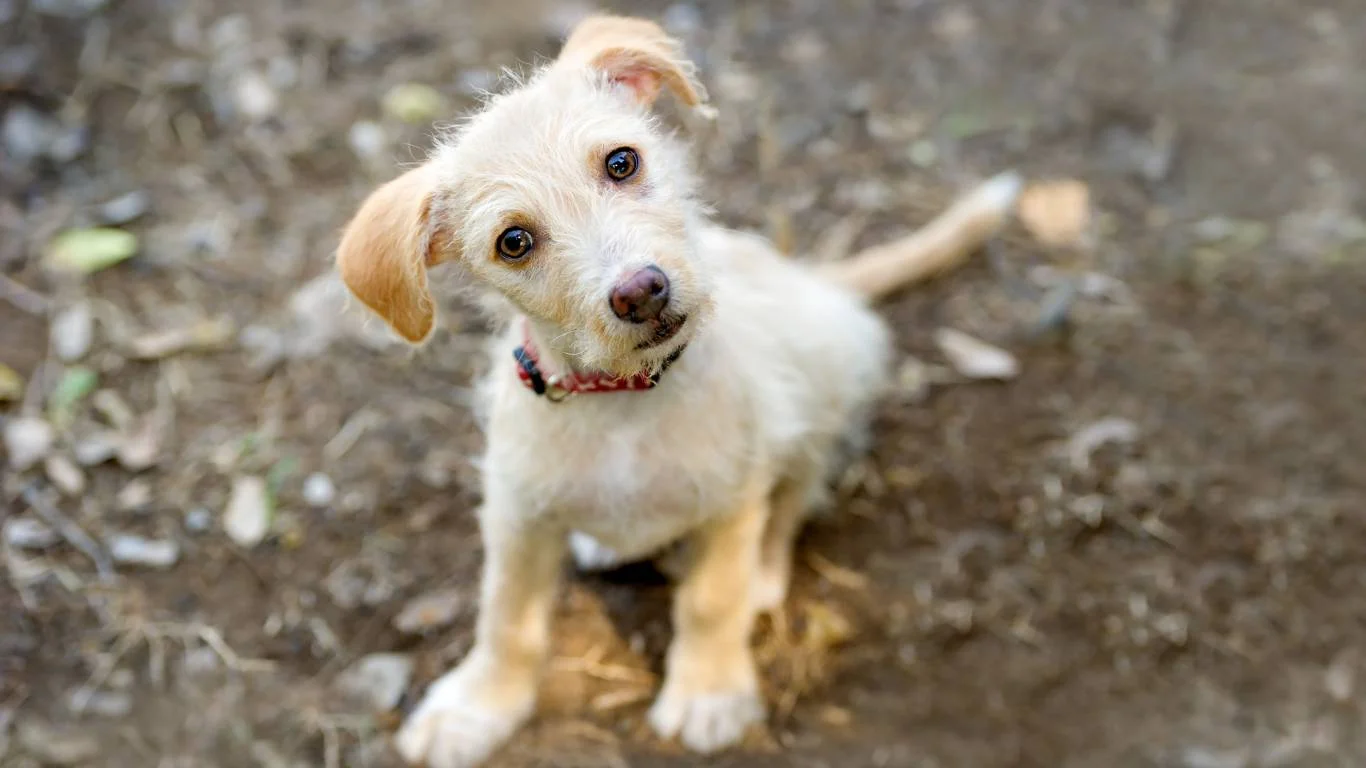
What Happens in a Dog’s Digestive System?
When your dog eats, the food goes through the stomach and intestines where it’s broken down by digestive enzymes and bacteria. Some of this food is digested, and the rest is passed along to the colon, where water and salts are absorbed. But what happens if the digestion process doesn’t go smoothly? Well, that’s where gas comes in.
Gas forms primarily due to fermentation of undigested food in the intestines. This occurs when certain foods don’t break down properly and instead sit in the digestive tract longer than they should. The bacteria in the intestines then ferment this food, creating gas as a byproduct. If there’s too much fermentation happening, you might notice more frequent or noticeable flatulence in your dog.
Common Causes of Excessive Gas in Dogs
So, what could be causing your dog’s gas to become excessive? There are several reasons, ranging from diet issues to underlying health conditions. Here are some of the most common culprits:
- Dietary Choices: The type of food your dog eats plays a huge role in the amount of gas they produce. Foods that are rich in fiber, like beans, certain vegetables, or dairy products, can lead to increased gas. If you’ve recently changed your dog’s food, this could also be a factor. Sometimes, the ingredients in commercial dog food, like certain fillers or artificial additives, can be difficult for dogs to digest properly.
- Food Intolerances or Allergies: Dogs can be intolerant or allergic to certain ingredients, leading to digestive upset and increased gas. Common allergens include grains (like wheat or corn), dairy, or even specific proteins such as chicken or beef.
- Eating Too Quickly: Some dogs eat so fast that they swallow air along with their food. This can lead to bloating and excessive gas. It’s not uncommon for dogs to wolf down their meals in record time, especially if they’re particularly eager to eat.
- Gut Imbalances: Just like humans, dogs can suffer from imbalances in the gut bacteria (also known as dysbiosis). If your dog’s microbiome is out of balance, it can lead to problems with digestion and gas production.
- Ingestion of Foreign Objects: Dogs sometimes eat things they shouldn’t—like garbage, toys, or even socks! If your dog has swallowed something that isn’t digestible, it could cause gas, bloating, or even more serious digestive problems.
Signs That Excessive Gas May Be a Bigger Problem
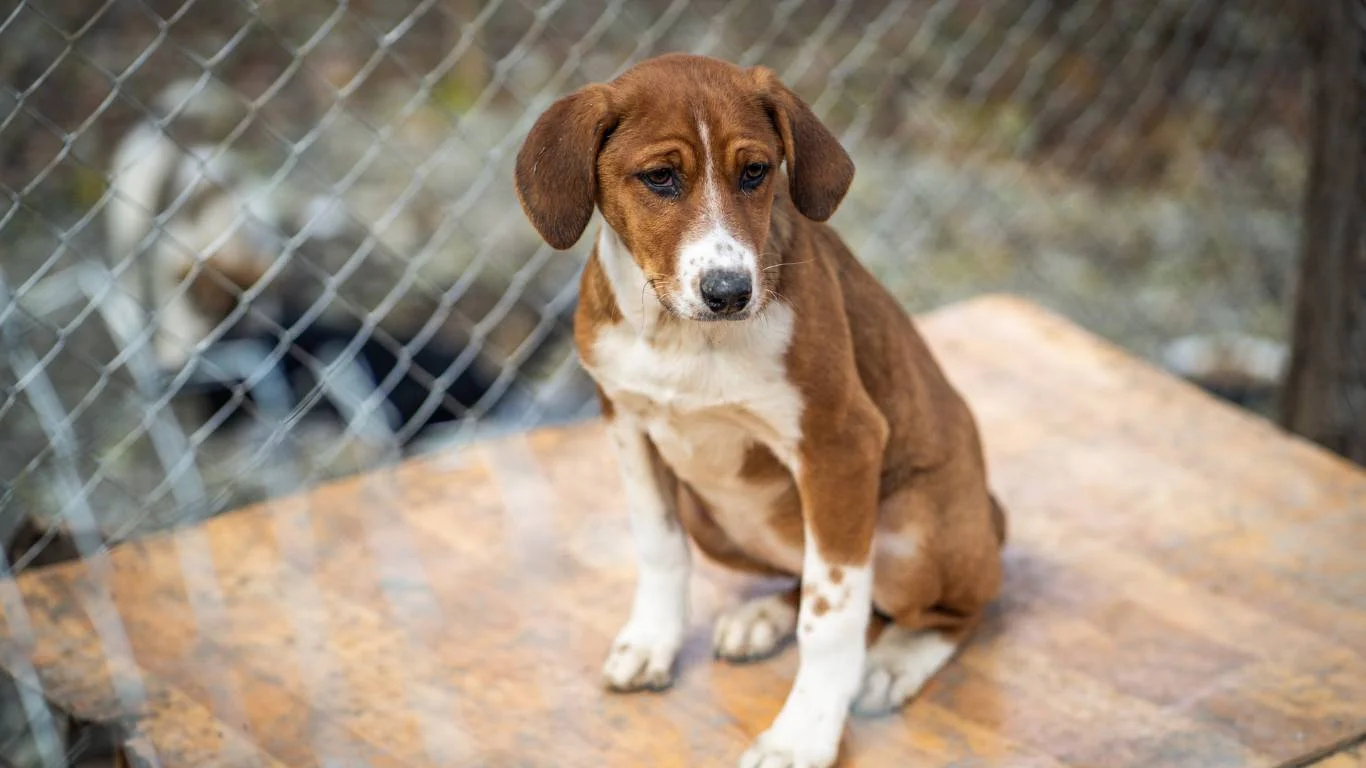
While occasional gas is normal, there are times when it might indicate a more serious issue. If your dog’s gas is accompanied by other symptoms, it’s worth paying attention. Some signs that excessive gas could be a bigger problem include:
- Vomiting or Diarrhea: If your dog is not only gassy but also experiencing vomiting or diarrhea, it could be a sign of gastrointestinal upset or a more serious infection.
- Bloating: If your dog’s stomach looks swollen or distended, this could be a sign of bloat (gastric dilatation-volvulus), a serious condition that requires immediate veterinary attention.
- Lethargy: Excessive tiredness or lack of interest in activities could indicate that your dog is uncomfortable or experiencing pain due to gas buildup or another digestive issue.
- Appetite Changes: A decrease in appetite or refusal to eat may suggest that your dog’s digestive system is not functioning properly.
If you notice any of these signs alongside your dog’s gas issues, it’s always a good idea to consult with your veterinarian to rule out any serious conditions.
Is Your Dog’s Gas Related to Their Diet?
As a Veterinary Assistant with a nutrition focus, I can’t stress enough how important diet is when it comes to your dog’s digestive health. Poor quality food, sudden diet changes, or feeding your dog foods that don’t agree with them can all contribute to excessive gas. One of the first things I ask pet owners when they bring in a gassy dog is, “What are you feeding them?” Sometimes, the answer alone can give me clues about the problem.
If you suspect your dog’s food is the cause of their gassiness, consider transitioning to a high-quality food that’s easier on their digestive system. Look for foods that are free from artificial additives and have easily digestible protein sources. Also, if your dog has known food sensitivities, it’s crucial to avoid ingredients that might trigger discomfort.
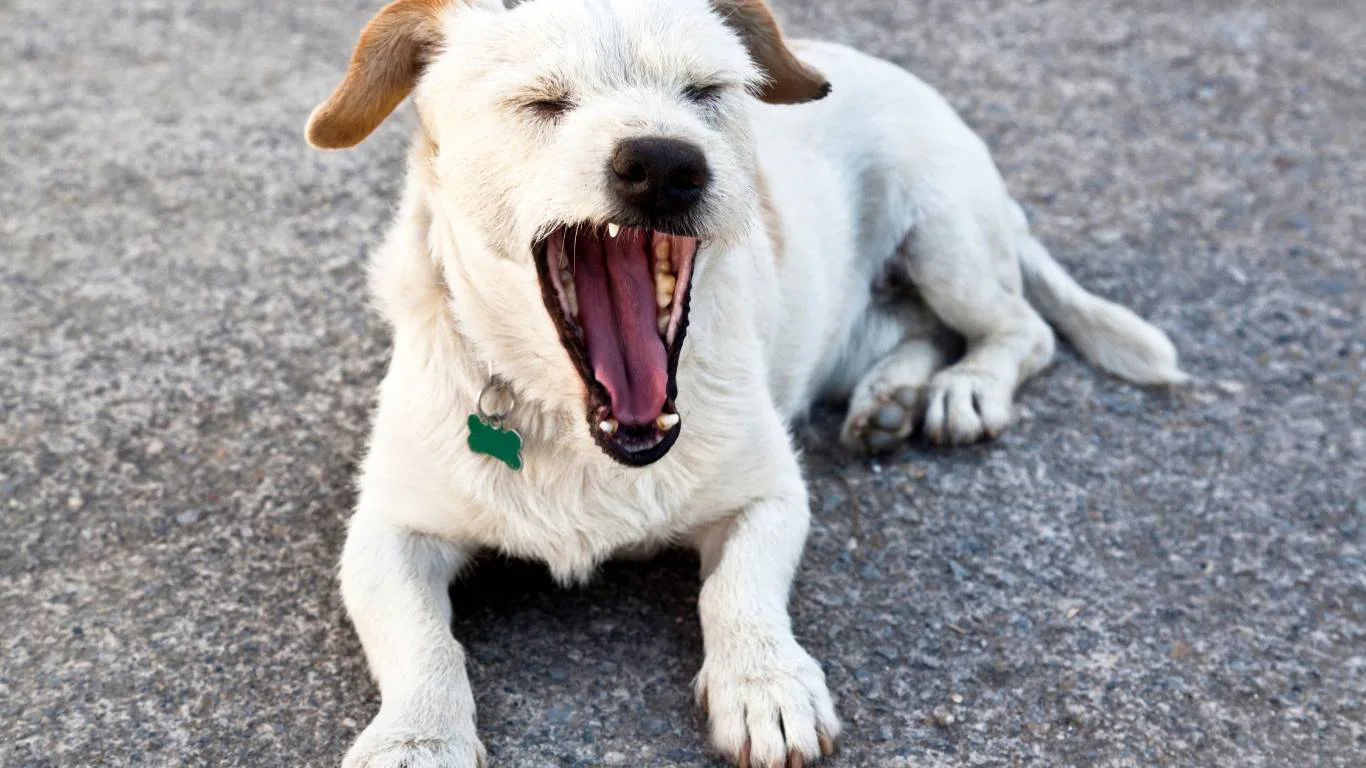
How to Help Your Dog Manage Gas
Now that we’ve covered some of the most common causes of excessive gas in dogs, let’s talk about how you can help manage it. It’s always best to start with diet adjustments, but there are also a few other strategies that might help your dog feel more comfortable and reduce their gassy moments.
Keep reading for more tips and tricks in the next part of this blog!
How to Help Your Dog Manage Excessive Gas
Now that we’ve touched on the causes of excessive gas in dogs, let’s dive into how you can help your furry friend manage this issue. As a Veterinary Assistant, I’ve seen it all—from dogs who can clear a room with their gas to those whose digestive troubles leave them feeling uncomfortable and lethargic. The good news? There are a variety of ways to help your dog, whether it’s through simple dietary adjustments or more comprehensive changes to their routine. Here’s what you can try to alleviate your dog’s gassy situation.

1. Modify Their Diet
As I mentioned in Part 1, your dog’s diet is one of the most significant factors when it comes to excessive gas. This is something that can often be easily addressed with a few simple adjustments. The first thing I recommend is evaluating your dog’s food ingredients. Does it contain easily digestible proteins like chicken or lamb, or are there a lot of fillers like corn, wheat, or soy? These fillers are often tough on your dog’s digestive system, leading to fermentation and excess gas.
If you’re feeding your dog a low-quality commercial food, it might be worth transitioning to a higher-quality brand. Look for options with fewer artificial additives, as these can irritate the stomach and intestines. You might even consider trying grain-free or hypoallergenic formulas if your dog has food sensitivities. In my experience, switching to a more digestible food has made a world of difference for many dogs struggling with flatulence.
2. Slow Down Their Eating
Some dogs eat so quickly that they practically inhale their food. While it may seem harmless, eating too fast can actually contribute to excessive gas. When your dog eats quickly, they swallow air along with their food, which then leads to bloating and increased gas production. This is especially true for dogs who are overly excited at mealtime or are used to eating in a rush.
To solve this, I suggest investing in a slow-feed bowl. These bowls are designed with ridges or obstacles that force your dog to eat more slowly. You can also try dividing their meals into smaller portions throughout the day, so they don’t have to consume everything in one sitting. Trust me, these little changes can make a big difference in reducing that extra air and gas in their system.
3. Add Digestive Enzymes or Probiotics
Sometimes, a dog’s digestive system needs a little extra help to break down food properly. This is where digestive enzymes or probiotics can come in handy. Digestive enzymes help break down fats, proteins, and carbohydrates more effectively, which can reduce the likelihood of undigested food fermenting in the intestines. Probiotics, on the other hand, help balance the gut bacteria and support healthy digestion.
I’ve seen many dogs benefit from these supplements, especially those who have chronic digestive issues. If you’re thinking about adding them to your dog’s diet, it’s always best to consult with your veterinarian first to find the right supplement and dosage for your pet’s needs. Not all dogs need probiotics, but if they have a sensitive stomach or have recently been on antibiotics, these can help restore balance to their digestive system.
When to Consult Your Veterinarian

While many cases of excessive gas can be managed at home, it’s important to know when to seek professional help. If your dog’s gas is persistent or accompanied by other symptoms, such as vomiting, diarrhea, loss of appetite, or lethargy, it’s time to contact your vet. This is especially important if your dog’s discomfort seems to worsen over time or if you notice any drastic changes in their behavior.
There are several conditions that could cause excessive gas in dogs, including:
- Gastrointestinal Infections: Bacterial or viral infections in the digestive tract can lead to severe gas, along with other symptoms like diarrhea or vomiting.
- Food Intolerances: As mentioned earlier, food sensitivities or allergies could be the root cause of your dog’s flatulence. If diet changes aren’t helping, your vet may recommend an elimination diet to pinpoint the problem.
- Infections or Parasites: Intestinal parasites, like worms, or infections in the gastrointestinal tract could be contributing to your dog’s digestive issues. Your vet can run tests to rule these out.
- Pancreatitis: This is a condition where the pancreas becomes inflamed, and it can result in digestive disturbances, including excessive gas. Pancreatitis requires professional medical treatment.
If you’re worried about your dog’s digestive health, don’t hesitate to make an appointment. Your veterinarian can provide a thorough examination and help identify any underlying health concerns. Getting a professional opinion can give you peace of mind and help you take the right steps in managing your dog’s gas.
4. Consider a Scheduled Feeding Routine
Dogs are creatures of habit, and they thrive on routine. If your dog has a tendency to get gassy, it could be helpful to establish a regular feeding schedule. This not only helps with digestion but also encourages a more controlled eating pace. Instead of letting your dog graze throughout the day, stick to a set mealtime and stick to it. This routine can help regulate their digestive system and make it easier to track any changes in their behavior or health.
By feeding your dog at the same time each day, you can also prevent overeating or excessive hunger that might lead to gulping down food too quickly, which, as we know, can contribute to gassiness. Plus, knowing exactly when your dog eats makes it easier for you to spot any unusual symptoms that might need a vet’s attention.
Additional Tips for Reducing Gas in Dogs

There are a few other simple steps you can take to help reduce your dog’s gas and keep them feeling good:
- Exercise: Regular exercise helps to keep your dog’s digestive system functioning smoothly. A walk after meals, for example, can encourage digestion and help alleviate bloating and gas.
- Avoid Table Scraps: While it might be tempting to share your food with your dog, human food is often difficult for dogs to digest and can cause gas, upset stomach, or worse. Stick to their regular dog food to avoid upsetting their tummy.
- Hydration: Ensuring that your dog drinks enough water is crucial for digestion. Dehydration can lead to constipation, which can exacerbate gas. Always make sure fresh water is available at all times.
By following these tips and paying close attention to your dog’s eating habits, you’ll be able to manage their gassiness and keep them comfortable. Every dog is different, so what works for one might not work for another. Keep experimenting with different strategies, and don’t be afraid to ask your vet for personalized advice based on your dog’s specific needs.
Remember, your dog’s digestive health is just as important as their overall well-being. Addressing excessive gas early on can help prevent bigger problems down the road. Stay tuned for more tips on how to keep your dog happy, healthy, and gassy-free!
When to Seek Further Medical Attention for Excessive Gas in Dogs
So, you’ve tried adjusting your dog’s diet, encouraging slower eating, and possibly adding some digestive supplements, but their excessive gas still seems to be an issue. At this point, you might be wondering whether you should be concerned or if there’s something more going on behind the scenes. While many cases of gassiness can be addressed with simple changes, there are instances where seeking professional help is necessary. In my years of working as a Veterinary Assistant, I’ve learned that some situations go beyond what a simple diet tweak can fix. Here’s how to know when it’s time to call in the experts.

Warning Signs of Serious Conditions
As mentioned earlier, excessive gas can sometimes be a symptom of something more serious. It’s essential to recognize the signs that indicate it’s time for a vet visit. If your dog is experiencing any of the following along with excessive gas, it’s better to be safe and consult a veterinarian:
- Severe Bloating: If your dog’s stomach appears swollen or distended, this could indicate a serious condition called bloat (gastric dilatation-volvulus). This is a life-threatening emergency, and your dog needs immediate veterinary attention.
- Persistent Vomiting or Diarrhea: If your dog’s excessive gas is accompanied by persistent vomiting or diarrhea, it could point to an infection, food intolerance, or gastrointestinal disease that requires medical intervention.
- Loss of Appetite or Weight: A noticeable decrease in your dog’s appetite or unexplained weight loss can be a sign of underlying digestive issues or a more serious disease. If your dog is avoiding food and losing weight, it’s time to schedule an appointment.
- Increased Lethargy: If your dog is unusually tired, listless, or unwilling to engage in activities they typically enjoy, it could be a sign of gastrointestinal discomfort or other medical conditions. When gas becomes paired with lethargy, it’s crucial to take action.
- Excessive Drooling: Some dogs will drool excessively when they’re in discomfort. If you notice an increase in drooling along with gas, it may indicate that your dog is experiencing significant digestive distress.
If you notice any of these symptoms, please don’t wait. Your veterinarian will be able to diagnose the problem through physical exams, blood tests, or even X-rays, and they can recommend the best course of action to get your dog back on track.
Tests Your Veterinarian Might Perform
When you bring your dog in for a checkup regarding excessive gas, your veterinarian may conduct a few tests to get to the root of the problem. Some of these tests may include:
- Physical Exam: This is usually the first step. The vet will examine your dog’s abdomen for signs of bloating or tenderness, and they may listen to the intestines for abnormal sounds.
- Fecal Examination: If your vet suspects parasites or gastrointestinal infections, they might run a fecal test to check for the presence of worms or bacteria.
- Blood Work: Blood tests can help identify issues like liver or kidney disease, pancreatitis, or other conditions that may cause digestive upset.
- X-Rays or Ultrasound: If bloat or an obstruction is suspected, the vet may take X-rays or conduct an ultrasound to get a clear view of the digestive tract.
Once your dog has been diagnosed, your vet will be able to provide treatment tailored to their specific condition, whether that’s medication, dietary adjustments, or more specialized care.
Preventing Excessive Gas in Dogs: Long-Term Solutions
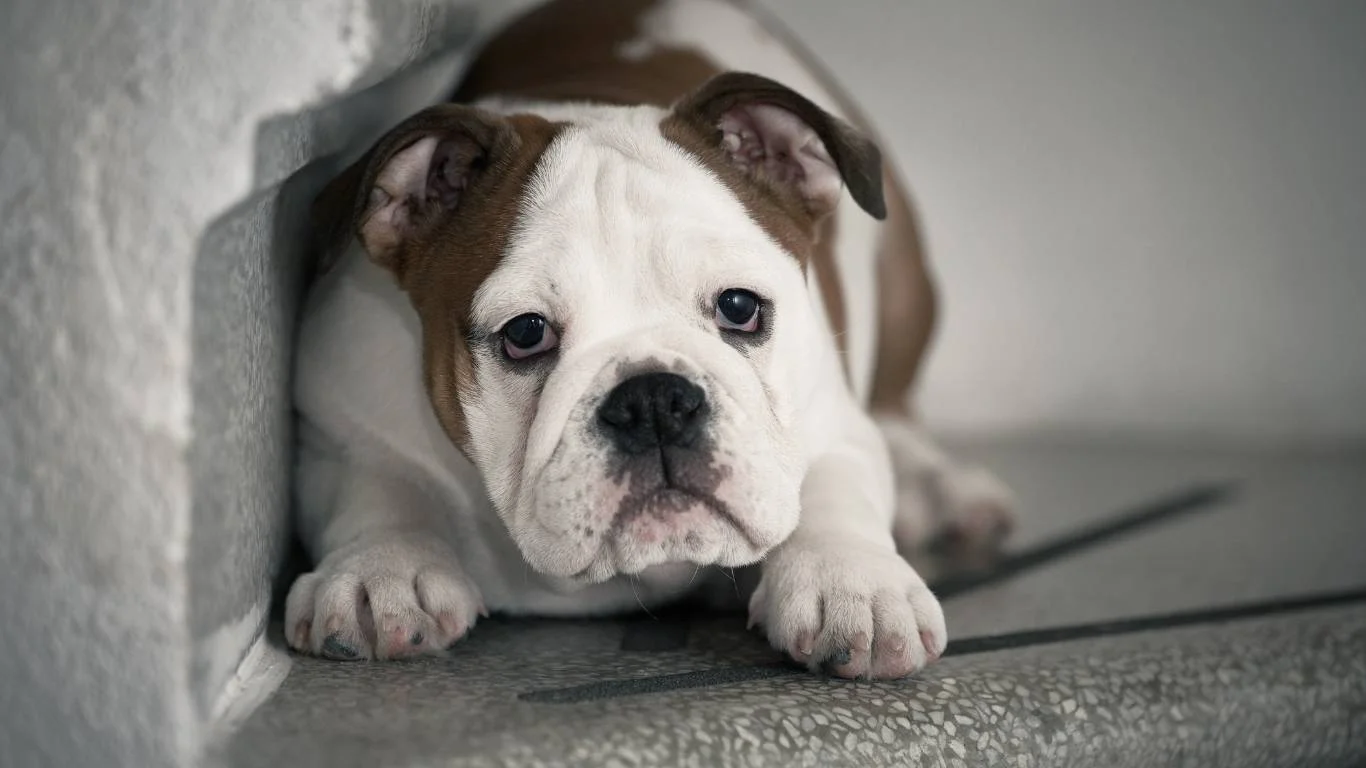
Preventing excessive gas in dogs goes hand in hand with managing it. The key is making sure that your dog’s digestive system is functioning as smoothly as possible. Here are a few long-term strategies you can implement to keep your dog’s gas at bay:
1. Maintain a Consistent Feeding Schedule
We’ve touched on this before, but a consistent feeding schedule is incredibly important. By feeding your dog at the same time each day, you’ll help regulate their digestion. A set routine also minimizes the risk of overeating or gulping down food too quickly, both of which can contribute to gas buildup. If your dog is prone to eating too fast, consider splitting meals into smaller portions throughout the day to reduce the risk of bloat and gas.
2. Keep a Close Eye on Their Weight
Obesity is another risk factor that can exacerbate digestive issues, including excessive gas. Overweight dogs are more likely to experience gas, bloating, and other gastrointestinal problems. By maintaining a healthy weight for your dog, you’ll reduce the strain on their digestive system and improve overall health.
Regular exercise is a great way to keep your dog fit. Whether it’s a walk around the block or some playtime in the backyard, staying active helps your dog’s digestive system function better and promotes general well-being.
3. Stick to Safe, Nutritious Treats
While it’s tempting to give your dog scraps from the table or treats from the pet store, it’s essential to choose treats wisely. Some treats, especially those that are high in fat or sugar, can lead to digestive upset, including gas. Stick to healthy, natural treats, and avoid giving them too many at once. If you’re unsure which treats are best for your dog, ask your vet for recommendations.
4. Consider Regular Check-Ups with Your Veterinarian
Regular vet visits are crucial to your dog’s long-term health. During these check-ups, your veterinarian can monitor your dog’s overall health and catch any potential issues before they become bigger problems. If your dog is prone to digestive issues, it’s even more important to keep up with regular check-ups to prevent complications from arising.
By taking a proactive approach to your dog’s diet, exercise, and overall care, you can help prevent excessive gas and keep your dog feeling their best. Staying informed and involved in their health is one of the best ways to ensure they live a long, happy, and comfortable life.
References
Disclaimer: This article is intended for informational purposes only and should not be used as a substitute for professional veterinary advice. Always consult with your veterinarian regarding any concerns about your dog’s health.
